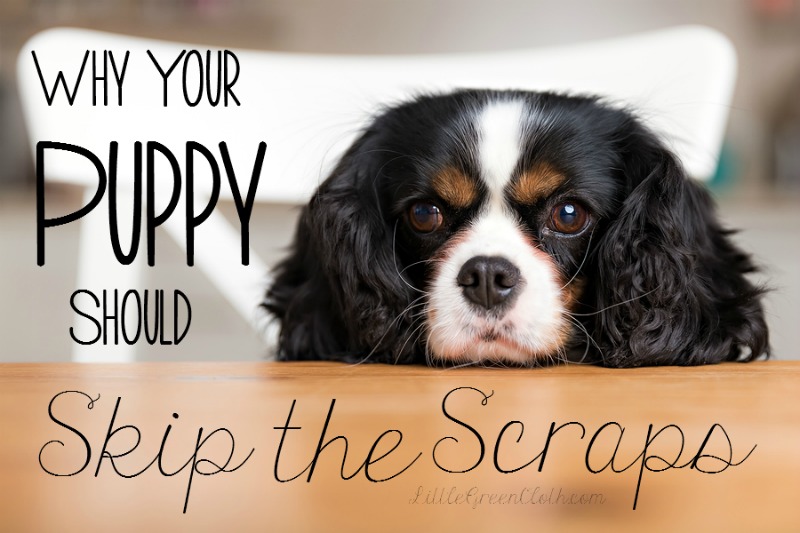 You know the look- sad eyes, paws on your lap, eyes intent on your every forkful. It’s so hard to resist a begging dog! As we’ve been getting ready to bring home our new puppy, I’ve been preparing my sons for this new responsibility, which includes knowing which foods dogs should not eat. In general, dogs’ food and how much they intake should be monitored since obesity can lead to further health issues. The American Kennel Club website and the American Society for the Prevention of Cruelty to Animals® (ASPCA®) website both have very comprehensive lists, but I wanted to just touch on a couple categories.
You know the look- sad eyes, paws on your lap, eyes intent on your every forkful. It’s so hard to resist a begging dog! As we’ve been getting ready to bring home our new puppy, I’ve been preparing my sons for this new responsibility, which includes knowing which foods dogs should not eat. In general, dogs’ food and how much they intake should be monitored since obesity can lead to further health issues. The American Kennel Club website and the American Society for the Prevention of Cruelty to Animals® (ASPCA®) website both have very comprehensive lists, but I wanted to just touch on a couple categories.
- Chocolate/coffee (grounds)– It’s pretty common knowledge that dogs shouldn’t have chocolate and you probably won’t be serving your dog a cup of coffee, but dogs are curious and could get into your garbage and eat the coffee grounds. For both chocolate and coffee, the methylxanthines in the cacao seed can cause vomiting and diarrhea, panting, excessive thirst and urination, hyperactivity, abnormal heart rhythm, tremors, seizures and even death.
- Nuts– Some nuts are ok for dogs, like peanuts, others kinds, like macadamia nuts, can cause very severe reactions. They can cause weakness, depression, vomiting, tremors and hyperthermia.
- Garlic/Onions– These foods aren’t usually served plain, but think of how often you use these in cooking! I use onions and garlic almost everytime I make meat. Avoid giving these foods because they can cause anemia and lead to side effects such as pale gums, elevated heart rate, weakness, and collapsing.
- Dairy– You’ll want to avoid giving your dog dairy because their digestive system has a harder time breaking it down, resulting in diarrhea.
- Fruits– Not all fruits are bad, but citrus fruits and grapes/raisins should not be given to dogs. The citrus fruits contain essential oils that can cause irritation and affect the nervous system. There is something in grapes that can cause kidney failure, but scientists have yet to pinpoint the exact reason.
- Xylitol- This is an artificial sweetener used in sugarless gum, some sugar-free candies, chewable vitamins, even some baked goods and peanut butter. It ” is safe for humans but can cause severe low blood sugar, seizures — even liver failure — in dogs” (cbsnews.com).
If you need a little visual to help you remember, check out this awesome inforgraphic from DiamondPup.com!

As tempting as it is to give in or just let the dog finish off our leftovers, it’s better all around for dogs to just stick to their food. I wouldn’t want to risk harming them or having to clean up a big mess from a bad reaction! In the event though that I do have to clean up a mess, we’re ready with an EAP (Emergency Action Plan) and our Norwex! The Carpet Stain Buster is amazing at lifting protein-based stains out of carpets, rugs and upholstery. I’ll also be stocking a bottle of the Odor Eliminator because the bacterial spores eat up the organic matter causing the odor so I won’t just be masking the smell. We’re counting down the days to our new puppy! Have you ever had any bad reactions to food with your dog? What caused it? I’d like to hear your feedback!
Thanks for stopping by!
~ Suzanne
Save
Save
Save
Save
Save





Leave a Reply